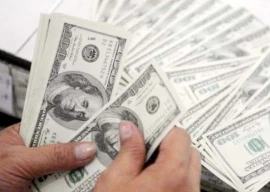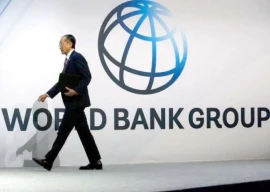
A new tax scam has surfaced in the Federal Board of Revenue (FBR) where tax authorities illegally paid over Rs16 billion in sales tax refunds to hundreds of big retailers in the past five months.
According to government sources and a list of beneficiaries of the illegal input tax adjustments, the payments were made between September 2021 and January 2022 in violation of the Sales Tax Act and Sales Tax General Orders (STGOs) issued during the period.
Tax authorities failed to implement at least four orders that had disallowed 60% input tax adjustments for those large retailers who did not integrate with the tax system through Points of Sale (POS), according to the sources.
It is the biggest scam that has surfaced in the FBR during the tenure of Pakistan Tehreek-e-Insaf (PTI) government. The matter has already been brought to the notice of Finance Minister Shaukat Tarin and the FBR chairman has formed an inquiry committee.
FBR Chairman Dr Mohammad Ashfaq told The Express Tribune that an inquiry committee had been constituted to ascertain whether it was deliberate or negligence of the officers of Pakistan Revenue Automation Limited (PRAL) or the FBR. PRAL is a subsidiary of the FBR that handles its database. To a question whether the loss to the exchequer was in the range of Rs16 billion to Rs19 billion, the chairman said that nothing could be said until the inquiry committee finalises its report next week. But he disputed that the amount was that much high.
“Our own system detected the input tax adjustments for the non-integrated tier-I retailers and I immediately ordered an inquiry that should be appreciated,” said Ashfaq.
A grade-20 officer from the FBR’s operations wing has been authorised to conduct the inquiry. However, this cannot be considered an independent inquiry as the operations wing along with the policy and POS cell and PRAL are responsible for implementation of the law.
The chairman stressed that whosoever was found involved in it would not be spared.
Through the Finance Act 2019, the government had decided that those tier-I retailers that would not integrate with the FBR’s online system would be penalised by denying them refunds of up to 15% of their claims. This ratio was increased to 60% through the Finance Act 2021.
To implement the law, the FBR issued various STGOs from August 2021 to December 2021. But the record showed that the FBR did not implement these STGOs and allowed illegal sales tax adjustments for hundreds of retailers.
The FBR issued the first STGO in August 2021 and put 6,762 retailers on a five-day notice to either integrate or lose 60% of refunds against the amount claimed.
The second STGO was issued in September, mentioning 466 names while the third STGO was issued in October having 1,230 names. The fourth STGO was issued in November carrying 605 names.
However, except for a few who integrated with the system, the FBR allowed full sales tax adjustments to the rest of the retailers that caused a colossal loss, which was estimated at Rs16 billion at the time of ordering the inquiry. Sources said that the figure further jumped to Rs19 billion.
FBR officials said that the STGOs issued since December had now been implemented. But details showed that even on January 18, Rs2.4 million was paid illegally to a trader.
A tier-1 retailer was paid Rs320 million in illegal refunds - the highest amount. However, one retailer got over Rs770 million in illegal refunds between September and November in four tranches.
Enhancing revenue collection through linking POS with the FBR database was the biggest initiative announced by Finance Minister Shaukat Tarin in the budget.
The minister also pitched the POS initiative to the International Monetary Fund (IMF) as the biggest revenue generator in the current fiscal year.
Tarin said that he would connect 500,000 POS with the FBR system and collect Rs100 billion worth of taxes from the retailers in two years.
At the end of last fiscal year, about 11,000 POS had been registered with the FBR that have now increased to around 15,000.
Fingers are also pointed towards the development team of PRAL for its failure to upgrade the system in line with the new legal requirements. PRAL Chief Executive Officer Ahmad Nawaz did not reply to the question as to why FBR’s instructions were not implemented.
Sources said that there was mala fide intention from day one as the change request form that PRAL received on July 30 called for disallowing 60% “output adjustment” instead of “input adjustment”.
They said that the first list was given to PRAL on August 25 - seven days after the retailers had already claimed input tax adjustment for July.
Quantum of losses
Officials of the information technology wing of the FBR dispute the figure of Rs16 billion, saying the loss to the exchequer had been worked out on the basis of accumulated credit. After excluding this, the potential loss could be around Rs9 billion, said the sources.
They said that some of the distributors were also included in the list of ineligible retailers. However, the STGO provides a 10-day window to those whose names are included wrongly in the list.
Published in The Express Tribune, February 6th, 2022.
Like Business on Facebook, follow @TribuneBiz on Twitter to stay informed and join in the conversation.



1727778647-0/diddy-(16)1727778647-0-165x106.webp)

1732014631-0/BeFunky-collage-(71)1732014631-0-165x106.webp)












COMMENTS (9)
Comments are moderated and generally will be posted if they are on-topic and not abusive.
For more information, please see our Comments FAQ